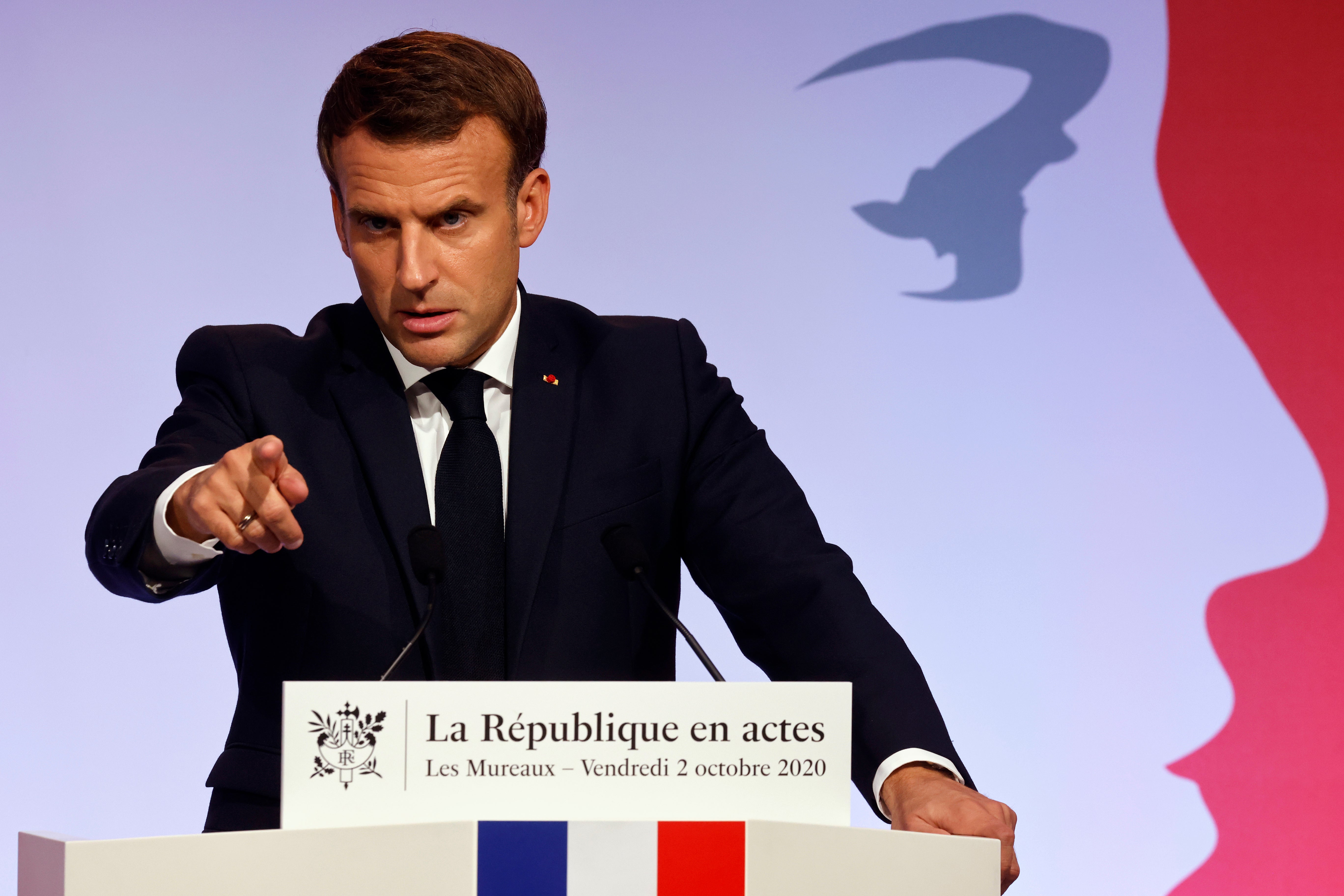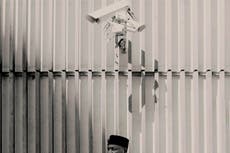President Macron says Islam ‘in crisis all over the world’, prompting backlash
French president unveils proposals to rid France of what authorities call 'parallel society’ of radical Muslims

The French president, Emmanuel Macron, says he hopes to rid France of what authorities call a “parallel society” of radical Muslims who, in his words, thrive outside the values of the nation.
The French president announced a series of measures on Friday in a proposed new law to “defend the republic and its values and ensure it respects its promise of equality and emancipation.”
He described Islam as “a religion that is in crisis all over the world today” before unveiling his plan to tackle radicalism. The comments prompted strong backlash from Muslim activists.
He also spoke of freeing Islam in France from “foreign influences” and intercepting education finances and other means to indoctrinate vulnerable people.
Macron coined the term “separatism” to describe an underworld in France that thrives in some neighbourhoods where Muslims with a radical vision of their religion take control of the local population to influence and indoctrinate.
Amongst the proposed measures are legal powers for local officials to combat extremism and a money injection to deal with social problems such as housing and poverty.
Wearing the hijab is already banned in French schools and for public servants at work.
The president stressed in the speech that he does not want the proposal to stigmatise French Muslims or fall into a “trap” laid by radicals. He blamed France itself for organising the “ghettoization” of a population that could easily fall prey to the preaching of some radical Muslims who may substitute their laws for those of the nation.
In the speech, Macron acknowledged how France’s colonial past has contributed to many of the problems in the country today.
However, he added that secularism has been and continues to be the “cement” of France.
The president outlined his plans in a speech in the working-class town of Les Mureaux, just west of Paris, after meeting with the mayor, Francois Garay.
Meanwhile, the trial continues in Paris after the deadly January 2015 attacks on satirical newspaper Charlie Hebdo and a kosher supermarket by French-born Islamic extremists.
Just last week, a Pakistan national stabbed two people near Charlie Hebdo’s former offices in vengeful anger over the publications featuring of caricatures of the Prophet Muhammad.
In his speech, Macron noted both occasions and said: “The country has been hit by Islamic terrorism since 2012 and we have progressively rearmed against this threat.”
Members of the French Muslim community have consistently denounced the acts, and describe them as going against the tenets of their religion.
The president also laid out a five-point plan that targeted the ways in which the radical brand of Islam is able to thrive around the world. Macron said that associations and home schools play key roles in steeping members and students in radical ideology.
The proposed bill is due to go to parliament early next year and would require all children from the age of three to attend French schools.
Distant learning and home schooling would only be allowed for medical reasons.
In the proposal, associations, which currently receive state funding, would be forced to be transparent about their spending and their often invisible leaders. They would also have to reimburse any misused funds and if found to be pushing ideas not aligned with the republic, they could be ordered to disband.
During the speech, Macron praised France’s schools as “the heart of secularism (where) children become citizens” and said education was key to the measures.
The authorities behind Macron’s proposal contend that while once the vectors for incubating extremist Muslim ideology were mosques, now schools have proved to be the main vector. However, mosques will still be placed under greater control in the new measures.
One proposed measure will include gradually ending the long-standing practice of importing imams, the leaders of prayer, from elsewhere and train imams only in France.
The project will collaborate with a Muslim advisory organisation that works as an official conduit to French leaders.
The rector of the Grand Mosque of Paris cautioned against mixing all Muslims in France with the “separatism question”.
“For those who let it be believed that Islam is Islamism, and the reverse, there is indeed a distinction between the Muslim religion and the Islamist ideology,” Chems-Eddine Hafiz wrote in a commentary in the newspaper Le Monde.
Nevertheless, the rector has shown support for the proposed initiative, on condition it’s not used as a communications gadget.
France has a population of up to 5 million Muslims with Islam the second most prevalent religion in the country.
While authorities say there are all kinds of “separatisms”, Macron claims that others are “marginal” while radical Islam is a constant danger to France as “it sometimes translates into a counter-society”.
The speech was a broad outline and more specific measures will be drawn up in the next two weeks.
He concluded by saying the proposed fight would indeed be long, because “what took decades to build won’t be put down in a day”.










Bookmark popover
Removed from bookmarks